QUICK SEARCH
African Conservation Trust, Agulhas Biodiversity Initiative, Animal Demography Unit, Birdlife South Africa, Cape Flats Nature, Cape Town Environmental Education Trust, Cat Conservation Trust, Cheetah Outreach Program, Conservation International, Council for Scientific and Industrial Research, Dyer Island Conservation Trust, Eagle Encounters, Eden to Addo Corridor Initiative, Endangered Wildlife Trust, Environmental Monitoring Group, Flower Valley Conservaiton Trust, Human Wildlife Solutions, Indigo Development and Change, Landmark Foundation, Land Rehabilitation Society of South Africa, Leopard Conservation Project, Lower Tugela Biodiversity Initiative, Mammal Research Institute, Modgaji Conservation Projects, Natures Valley Trust, Oceans Research, Ocean Research Conservartion Africa, Overberg Crane Group, South African Environmental Observation Network, SANCCOB, South African Shark Conservancy, TRAFFIC, Vulpro, Whale Coast Conservation, Wilderness Foundation, Wildlands Conservation Trust, Wildlife ACT fund, Wildlife and Environmental Society of South Africa, Wildlife Poisoning Prevention and Conflict Resolution and the World Wildlife Fund SA.
or
You can scroll down and read a bit about each organisation. The list runs in alphabetical order.

African Conservation Trust
The African Conservation Trust (A.C.T.) is a 12-year old, legally constituted non-profit organization with a growing reputation for its innovative efforts to conserve South Africa's natural resources, environment and heritage. ACT's major focus areas are endangered species , conservation agriculture , sustainable use of natural resources (water, land, energy, fauna & flora) and biodiversity preservation and expansion . We also work extensively in the Heritage sector , using modern technology to preserve Africa's rich history and culture. For more information click here.

Agulhas Biodiversity Initiative
The Agulhas Biodiversity Initiative (ABI) is a landscape initiative that serves as the conservation coordination hub of the Overberg region of South Africa. ABI is the meeting place for those involved in, or interested in, conserving this biodiversity hotspot. From private landowners, to government departments, to conservation organisations - ABI serves as their meeting point, where key conservation issues are tackled. For more information click here.
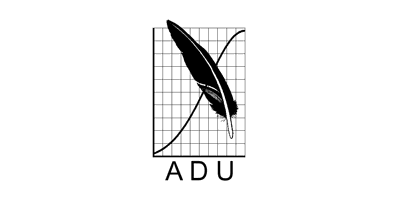
Animal Demography Unit
The Animal Demography Unit (formerly the Avian Demography Unit), or ADU as it is mostly known in the vernacular, is a research unit of the University of Cape Town . The mission of the Avian Demography Unit is to contribute to the understanding of animal populations, especially population dynamics, and thus provide input to their conservation. We achieve this through mass participation projects, long-term monitoring, innovative statistical modeling and population-level interpretation of results. The emphasis is on the curation, analysis, publication and dissemination of data. For more information click here.

BirdLife South Africa
The mission of BirdLife South Africa is to promote the enjoyment, conservation, study and understanding of wild birds and their habitats. BirdLife South Africa's aims are to prevent the extinction of any bird species, maintain and where possible improve the conservation status of all bird species, conserve and where appropriate improve and enlarge sites and habitats that are important for birds, help, through birds, to conserve biodiversity and to improve the quality of people's lives and to integrate bird conservation into sustaining people's livelihoods. For more information click here.
Cape Flats Nature
Cape Flats Nature represents an invitation to join in experimenting, testing, learning and developing an alternative social nature conservation practice in impoverished areas. More and more communities on the Cape Flats are recognizing that nature areas near their homes contribute to human well being. They do this through providing beautiful spaces for physical exercise and spiritual connection, opportunities for social development projects, outdoor classroom for environmental education and employment through nature based initiatives.For more information click here.

Cape Town Environmental Education Trust
The Trust was founded in 2001 as the Zeekoevlei Environmental Education Programme. The aim of the programme was to impact the lives of underprivileged children with a life changing environmental experience. Over the years the demand for the programme grew and the scope widened. In 2007 the name of the Trust was changed to The Cape Town Environmental Education Trust. In the same year the Nature Care Fund was started to manage projects on public and private land not currently part of the City of Cape Town's biodiversity network in partnership with corporate companies, Friends groups and private individuals. The aim of the fund is to give one young person with the aptitude to be a conservator the opportunity to complete the three year course in conservation. For more information click here.
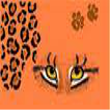
Cat Conservation Trust
South Africa enjoys seven species of indigenous wild cats. The big cats of Africa, like lions and cheetah, receive much focus and attention through tourism and the fact that they are more easily sighted than their smaller cousins. The small cats form an essential link in our ecosystem, but desperately require the same status as the larger cats. The Cat Conservation Trust is a non-profit trust that aims to create public awareness of the plight of the small cats through research and education. For more information click here.

Cheetah Outreach Programme
Cheetah Outreach is an education and community-based programme created to raise awareness of the plight of the cheetah and to campaign for its survival. In addition to partnering with ambassador cats to inform the public about the problems the cheetah faces, Cheetah Outreach continues to be involved in environmental education, offering curriculum-linked school presentations and resources as well as workshops and fellowships for teachers, breeds Turkish Anatolian Shepherd dogs and places them on South African farms to guard livestock in an effort to reduce conflict between farmers and predators, hand-rears cubs from the Ann van Dyk Cheetah Centre and raises them to be ambassadors for the species and partners with other cheetah conservation organizations worldwide. For more information click here.

Conservation International
Through science, policy and field work, we're applying smart solutions to protect the resources that we all depend on. We help communities, countries and societies protect tropical forests, lush grasslands, rivers, wetlands, abundant lakes and the sea. Only through properly valuing the essential services these ecosystems provide can we create a sustainable development path that will benefit all people for generations to come. Raise a glass to conservationists in South Africa. To protect the nation's lands and waters, they're convinced that people from all walks of life must take part. In this diverse land that includes everyone from the Nama to the Ndebele, from pastoralists to potato farmers, from miners to winemakers, bringing people together in the name of conservation is a necessity. For more information click here.

Council for Scientific and Industrial Research
The CSIR is one of the leading scientific and technology research, development and implementation organisations in Africa. Constituted by an Act of Parliament in 1945 as a science council, the CSIR undertakes directed and multidisciplinary research, technological innovation as well as industrial and scientific development to improve the quality of life of the country's people. The CSIR is committed to supporting innovation in South Africa to improve national competitiveness in the global economy. Science and technology services and solutions are provided in support of various stakeholders, and opportunities are identified where new technologies can be further developed and exploited in the private and public sectors for commercial and social benefit. For more information click here.
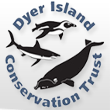
Dyer Island Conservation Trust
THE DYER ISLAND CONSERVATION TRUST was founded in 2006 by Wilfred Chivell. The Dyer Island Conservation Trust delivers unique conservation and research programmes in the fragile and critically important marine eco-system at the southern-most tip of Africa. Here we strive to protect the largest surviving colonies of the endangered African Penguin whose numbers are at an all-time low; the globally important breeding and calving grounds of the Southern Right Whale; and, the world's densest populations of the vulnerable Great White Shark. Together with eco-tourism partners MARINE DYNAMICS TOURS - a shark cage diving company operational since 2005, and DYER ISLAND CRUISES - a whale watching company operational since 2001, the Trust conducts valuable research, conservation and education. The companies hold Fair Trade in Tourism certification and employ marine biologists whose research is in turn supported through the Trust. The companies are essential in fundraising for the Trust. For more information click here.
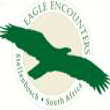
Eagle Encounters
Eagle Encounters is a bird of prey and wildlife rescue, rehabilitation, conservation, education and eco-tourism project. The center receives wildlife that has been injured, poisoned, orphaned or illegally removed from their nests, and works towards re-releasing them healthy, fit, successfully hunting and able-breeding back into the wild. Guests are invited to interact with non-releasable, hand-raised animals, as well as participate in the daily shows.
For a more info click here.

Eden to Addo Corridor Initiative
To assist and engage with landowners and all stakeholders to identify and develop a living corridor from Eden to Addo by applying sound land-use practices, encouraging a diversity of environmentally sustainable livelihoods and linking ecological important areas , for the benefit of biodiversity and the extended community. For more information click here.

Endangered Wildlife Trust
The EWT is a leading, high-profile player in the arena of conservation. We identify the key factors threatening biodiversity and develop innovative methodologies and best practice guidelines to reduce these and promote harmonious co-existence and sustainable living for both people and wildlife. We achieve our goals through specialist program, and our skilled field staff are deployed regionally and throughout southern Africa. For more information click here.

Environmental Monitoring Group
We believe that society's relationship with the natural environment is inextricably bound to our relationships with each other, and that true "sustainable development" is not possible without economic and social justice. Our focus is thus on helping to build democratic and fair decision-making processes that relate to the use and management of natural resources. We hope to encourage environmental practices that lead to a more human relationship with each other and the natural environment. EMG is an independent, not-for profit organisation established in 1991. We have a full-time staff of 9 professionals and offices in Cape Town and Nieuwoudville, South Africa. For more information click here.

Flower Valley Conservation Trust
Flower Valley Conservation Trust works to conserve the vulnerable fynbos kingdom, and protect those livelihoods that depend on it. Many fynbos species have already been lost, and more than 1000 are endangered. To counter this, we promote sustainable fynbos harvesting. We also host a Eco-School on Flower Valley Farm, offering youngsters aged two to six from surrounding communities an environmental education. For more information click here.
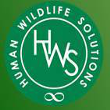
Human Wildlife Solutions
Our mission is to preserve biodiversity by providing innovative, non-invasive and sustainable solutions to resolve conflict situations between humans and wildlife. We are involved in providing services and consulting on a number of issues including: baboon management, damage causing animal control strategies, shark deterrent research, invasive alien vegetation removal, invasive birds and other animals, endangered plant species search and rescue and scientific consulting on films and documentaries.
For more information click here.
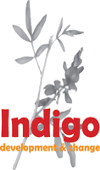
Indigo Development and Change
Indigo development and change facilitates empowerment of disadvantaged groups, contributing towards a socially just society while conserving biodiversity in rural areas of South Africa and in the context of changing natural and social systems. We will achieve this through development of participatory approaches, the active development of local and global networks and capacity development processes. For more information click here.

Landmark Foudation
The Landmark Foundation is a Non-Governmental organisation (NGO) facilitating the establishment and sustaining of conservation land uses in Southern Africa. Our projects are varied, and are both large and small. Some of our activities are projects with defined beginnings and ends, and others are programmatic, being ongoing and evolving. We work with many partners, from communities, private individuals and entities, government sector agencies and civil society groupings. We do not allow any allegiances compromise our principles. The Landmark Foundation is a conservation NGO, registered as a Charitable Trust, as a Not-for-Profit Organisation, and has tax exempt status. For more information click here.
Land Rehabilitaion Society of South Africa
As a group of young, qualified, experienced and enthusiastic land rehabilitation specialists, LaRSSA identified an opportunity to improve, facilitate, support, grow, consolidate, accelerate, evaluate, and communicate land rehabilitation stories. The Land Rehabilitation Society has become the way to channel this energy.LaRSSA provides land rehabilitation discussion forums, provides a platform for relevant capacity building of land rehabilitation best practice, hosts various technical field workshops and an annual conference where scientific research, case studies, as well as success and non-success stories can be shared, creates open communication channels between all stakeholders which will provide information that will influence policy to ensure more sustainable rehabilitation outcomes and promotes scientific research on land rehabilitation and communicate valuable outcomes.
For more information click here.

Leopard Conservation Project
The Leopard Conservation Project was established in 2000, and was registered as a non-profit, section 21 company in 2007. The primary focus of the project has been to protect leopard from poaching, poisoning, trapping and over-hunting. In recent years however, the focus has shifted to include the collection of data on population and territory size as well as the genetic relatedness and diversity of leopards within different regions of the country. For more information click here.
Lower Tugela Biodiversity Initiative
We are all about Land Stewardship and sustainable community development in the Zinkwazi Blythedale area. Saving the remaining natural coastal areas for future generations.
For more information click here.

Mammal Research Institute
The Mammal Research Institute in the Faculty of Natural and Agricultural Sciences at the University of Pretoria is dedicated to research and teaching on the biology and ecology of African mammals, including the conservation of our indigenous mammal fauna in the context of sustainable human development. The performance of the MRI is monitored and guided by an Advisory Committee, which meets once per year under the chairmanship of the Dean of the Faculty of Natural and Agricultural Sciences. For more information click here.
Modgaji Conservation Projects
Will and Sharon van Duyn have been actively dedicated to conservation since 1989. Having been involved in the establishment of several game reserves around South Africa, and the re-introduction of many animal species back into their natural habitat, their commitment to conserve nature continues into this exciting project. The projects aims to develop marginal farmlands to Game Reserves which will allow for the release of endemic species of wildlife, and the protection of flora, and fauna, t o develop and acquire land for conservation, to enable breeding of Cheetah, leopard and other endangered wildlife creating a population of free roaming game so their offspring can be relocated to other reserves living under natural conditions and to benefit communities through conservation and tourism. For more information click here.
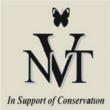
Natures Valley Trust
The Nature's Valley Trust is a small but growing conservation NGO operating in the Garden Route. We operate in four main arenas, namely Conservation, Education, Community and Research. We take a holistic view of people and the environment, and use our four programs to help shape how people live, how they view the world around them, and how they as individuals can contribute to conserving the natural world.We believe in partnerships, and we have many of them! As you visit our various program pages, you will notice this theme that runs throughout our work. Why not see how you can partner with us too? For more information click here.
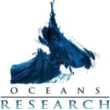
Oceans Research
Oceans Research provides and facilitates innovative and dynamic marine research relevant to the management and conservation of Southern Africa's marine life. Its research is interdisciplinary ranging from biological to the socio-economic study of marine resource utilisation in Africa's coastal society. Oceans Research specialises in investigating the biology of marine mega-fauna, including sharks, rays, marine mammals and turtles, and advises governmental, non-governmental and industry on relevant conservation issues. Oceans Research offers practical and theoretical training for aspiring marine scientists from internship to postgraduate levels in conjunction with partner schools, technical colleges and universities. In addition to in-house research projects, the institute provides facilities for visiting marine scientists conducting a variety of biological and oceanographic projects throughout the major marine biomes of Southern Africa. For more information click here.

Ocean Research Conservation Africa
The Orca Foundation is part of a volunteer community dedicated to marine conservation in South Africa, and like many conservation projects depends on the willingness of others to contribute their time and dedication to furthering the volunteer and conservation ethics that go hand in hand for a better future. Our mission statement is: To change the way you think and behave in your life relating to the sustainability of our environment in order to achieve intelligent co-existence.
For more information click here.
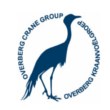
Overberg Crane Group
Blue cranes are under threat in South Africa. There are only around 25 000 blue cranes left in the country and of the remaining population, almost half are found in the Overberg in the Western Cape. As a result, South Africa's national bird is listed as vulnerable on the International Union for Conservation of Nature's Red Data List of Threatened Species. Threats to the survival of blue cranes include illegal trade, power-line collisions, poisonings and habitat loss. And that's where the Overberg Crane Group comes in. The Crane Group - a partnership between the Overberg community and CapeNature - realises that much still needs to be done and much still needs to be learnt about the blue crane and other threatened big bird species to protect them from further population decline.
For more information click here.

South African Environmental Observation Network
A sustained, coordinated, responsive and comprehensive in situ South African Earth observation network that delivers long-term reliable data for scientific research and informs decision-making for a knowledge society and improved quality of life. Earth observation science is urgently required to bring more certainty about environmental change, and to enable formulation of adaptive and mitigating management policies and practices, for themes ranging from food production to population health. The South African Environmental Observation Network (SAEON) was established in 2002 after a process of deliberation within the research community. Following extensive consultation with its sister departments, the Department of Science and Technology (DST) took the lead by mandating and funding the National Research Foundation to develop SAEON as an institutionalised network of departments, universities, science institutions and industrial partners. According to the SAEON mandate, its responsibilities rest on three mandates: observation , information and education. For more information click here.
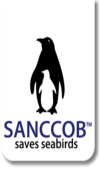
SANCCOB
SANCCOB is a leading marine non-profit organization with a vision to conserve seabirds and other sea-life, especially threatened species such as the African penguin. SANCCOB's research focuses on improving knowledge that will improve the conservation of seabirds in the wild, and improve our ability to care for seabirds during their rehabilitation process.As the mandated government rehabilitation authority in South Africa, SANCCOB protects and treats seabirds affected by major and chronic oil pollution, and shares its specialist skills with the international community, such as providing services in Africa, the Indian Ocean region, and the Sub-Antarctic. SANCCOB is registered with the South African Veterinary Council; a member of PAZAAB, the International Union for the Conservation of Nature (IUCN); is endorsed by the Department of Environmental Affairs, World Association of Zoos and Aquariums, European Association of Zoos and Aquariums and American Association of Zoos and Aquariums; and has many working partnerships globally. For more information click here.

South African Shark Conservancy
SASC is a non-profit company founded in 2007. We are dedicated to promoting the conservation & sustainable use of marine resources through research, education & awareness. SASC is governed by a Board of Directors and supported by a Technical Advisory Committee. For more information click here.

TRAFFIC
TRAFFIC's Vision is of a world in which trade in wild plants and animals is managed at sustainable levels without damaging the integrity of ecological systems and in such a manner that it makes a significant contribution to human needs, supports local and national economies and helps to motivate commitments to the conservation of wild species and their habitats. For more information click here.

Vulpro
VulPro approaches vulture conservation in an integrated, multidisciplinary fashion, with the benefits from the programme accruing to both vultures and society at large. VulPro combines education and good science, with networking, capacity building and knowledge generation. The veterinary disciplines of toxicology, pharmacology, clinical pathology and medicine are combined with the science of cell-phone telemetry and the banking of genetic resources, with the goal being to positively influence the well-being of our natural resources to the ultimate benefit of society. In this regard, VulPro engages in a number of interrelated activities, and uses a variety of resources, in endeavouring to meet its objectives. For more information click here.

Whale Coast Conservation
The Overstrand Conservation Foundation (OCF), now trading as Whale Coast Conservation, was established in 2002. We are a member based organisation founded with the mission to unify, coordinate and promote environmentally sustainable living in the Cape Whale Coast region of the Western Cape, South Africa . Our vision is that the Cape Whale Coast community will be a vibrant, environmentally sustainable community. Whale Coast Conservation's activities are governed by our constitution and guided by an elected management board, which represents the interests of the our members. Our work is performed by a small team of employees assisted by volunteers and partner organisations. The OCF is registered both as a Non-Governmental Organisation (NGO) and as a Public Benefit Organisation (PBO), which means that donations and bequests to the organisation are eligible for tax deductions. Since the founding of our organisation, we have adopted the view that the sustainability principles provide the basis for the achievement of environmental conservation and that achievement of a vibrant, one-planet / sustainable lifestyle is the common vision and ethos to which the Cape Whale Coast community must aspire. Whale Coast Conservation is based in Hermanus, Overstrand, the main centre of Cape Whale Coast in which we are active.
For more information click here.

Wilderness Foundation
The Wilderness Foundation is a project-driven conservation and leadership organisation that encourages, plans and protects wild lands and wilderness, uplifts the knowledge and lives of citizens and stimulates an environmental ethos among current and future leaders. We envisage a world that has sufficient intact natural ecosystems and wilderness areas that are valued and effectively protected for the benefit of all species.
Recognising that the protection and sustainability of South Africa's unique wilderness areas and natural heritage is dependent on socio-political and economic conditions within society, the Wilderness Foundation takes a holistic approach to implementing its mandate for conservation.
Focusing on four main programme areas: Conservation, Social Intervention, Experiential Education and Advocacy and Awareness.T he Foundation creates opportunities to encourage, plan and protect wild lands and wilderness, uplift the knowledge and lives of citizens and stimulate an environmental ethos among current and future leaders.
For more information click here.
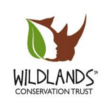
Wildlands Conservation Trust
Wildlands has developed a network of 'Green-preneurs' across four Provinces in South Africa. These are individuals marginalised from conventional economic activities due to a lack of skills and training or demand for their services. Wildlands enables their participation in the green economy by creating a platform for them to barter indigenous trees (Tree-preneurs) and recyclable waste (Waste-preneurs) for livelihood support goods such as food, building materials, bicycles (Bike-preneurs), solar panels and rain water harvesting tanks. Through this model, community ecosystems are restored and alternative modes of transport and energy introduced into communities. For more information click here.
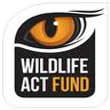
Wildlife Act Fund
We are a team of experienced conservationists, who get our hands dirty, working in the field, to save endangered and threatened species. We are a small, but efficient team who stretch every cent to make sure it is utilized in meaningful conservation operations. Our main focus is on the critically endangered Black Rhino and Painted Dog populations, as well as the threatened Cheetah and Vulture populations in Southern Africa. We understand, however, the impact of other ecologically important species including Elephant, Lion, Leopard and Hyena on these populations and, therefore, ensure that we do not ignore them in the work that we do. We do so by focusing on: finding and funding the right equipment needed to effectively monitor endangered and threatened species, delivering time and expertise to provide adequate management, capture, transport and reintroduction of these animals to new areas, implementing anti-poaching measures and technology in the field, helping rural communities who live alongside protected wildlife areas to develop a love and respect for nature, provide them with reasons to protect it, and advance economic empowerment.
For more information click here.
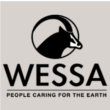
Wildlife and Environment Society of South Africa
Founded in 1926, WESSA (The Wildlife and Environment Society of South Africa) is one of South Africa's oldest and largest non-government environmental organisations. WESSA's vision is to be a highly effective and well-supported champion of the environment. To this end we implement high impact environmental and conservation projects which promote public participation in caring for the Earth. WESSA is represented on many National and Regional conservation bodies and investigatory commissions, and is a founder member of the World Conservation Union (formerly the International Union for the Conservation of Nature - IUCN). WESSA has been, and continues to be, a motivating force behind many of South Africa's most significant environmental decisions. These and other achievements are as a result of the voices and actions of ordinary South Africans - people who have been willing participants in caring for the Earth. For more informtation click here.
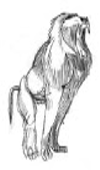
Wildlife Poisoning Prevention and Conflict Resolution
We advise our clients on how to apply systems thinking methodologies and appropriate wildlife management principles and practices to address wildlife poisoning and other conflict scenarios throughout Southern and Eastern Africa. This includes drafting of wildlife management plans, training and advisory services, support to land-managers and enforcement agencies, wildlife poisoning prevention, investigation, and prosecution advise. We offer advice and support for conflicts with all species, ranging from mosquitoes to elephants, seeking cost effective and locally applicable and available solutions. Resolutions of conflict between people and wildlife in agricultural, forestry, and urban scenarios is a key activity of the organisation. Our experince in the field is broad. Our objective is to establish a harmonious relationship between people and wildlife; preempting and preventing conflict through appropriate economically sensitive management planning. Our CEO, Tim Snow andis a co-author of the booklet and Predators and Farmers and has collaborated on many other publications. Tim established; and is chairman of the National Problem Bird Forum and the National Chemic al Crime Management Forum. He is Vice Chair of the IUCN South African members committee and is an executive committee member of SA Wingshooters, and the Game Rangers Association of Africa.
For more information click here.

World Wildlife Fund (South Africa)
Within its global programme framework, the WWF network aspires to collectively tackle environmental issues. The Director General of WWF International, James Leape, has appealed to WWF offices worldwide to act as one WWF - with the best scientists, astute negotiators and offices from the Philippines to Mexico sharing resources and working together as one global network, we can catalyze change on a global scale. This vision has been encapsulated into various network initiatives. These aim to accelerate and magnify large conservation wins across our priority species, places and footprint areas - and so achieve the necessary "transformational change" to achieve our twin goals of conserving biodiversity and reducing humanity's impact on nature. For more informatio click here.
 If you want your company or business on this site, please email me - its totally free!
If you want your company or business on this site, please email me - its totally free!